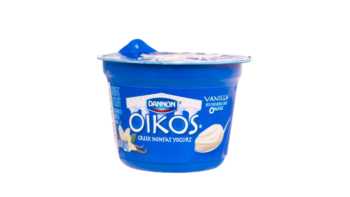
Answer:
Although yogurts, such as Greek yogurt, may be teeming with organisms used as starter cultures (such as Lactobacillus bulgaricus and Streptococcus thermophilus), these are not necessarily "probiotic" organisms, i.e., those which seem to survive passage through the stomach and populate the gut for beneficial effect.
If you want probiotic organisms, you'll need to get them from a separate product or purchase a yogurt to which probiotic organisms have specifically been added (check the label). Many clinical studies of probiotics in Asia and Europe have, in fact, been conducted with yogurts and other cultured dairy products to which probiotics have been added. You can read about these studies, learn more about probiotics, and see our tests of popular probiotic products in the Probiotics Supplements Review.
Also, see our article, "Is Greek yogurt a good source of protein?" to find out if Greek yogurt a better source of protein or calcium than regular yogurt.
Join today to unlock all member benefits including full access to all CL Answers and over 1,400 reviews.
Join NowAlready a member? Sign In Here.
Join now at www.consumerlab.com/join/












tom2458
April 18, 2019What About Kefir?i read, the bacteria should survive from kéfir?
 ConsumerLab.com
ConsumerLab.com
April 22, 2019Hi Tom - Yes, bacteria can survive in kefir. Past ConsumerLab tests of popular kefir drinks found that they contained billions of live bacteria https://www.consumerlab.com/reviews/probiotic-supplements/probiotics/#whatitis. However, as with yogurt, this does not necessarily guarantee a specific health benefit. This was shown in a study (also discussed in the Review) that compared a regular kefir drink with one that contained added probiotics strains: https://www.consumerlab.com/reviews/probiotic-supplements/probiotics/#mikelsaar.
Reply to this post…